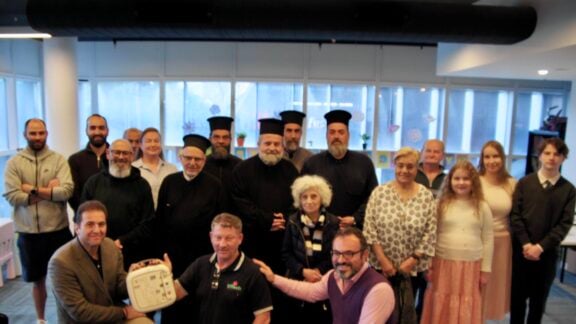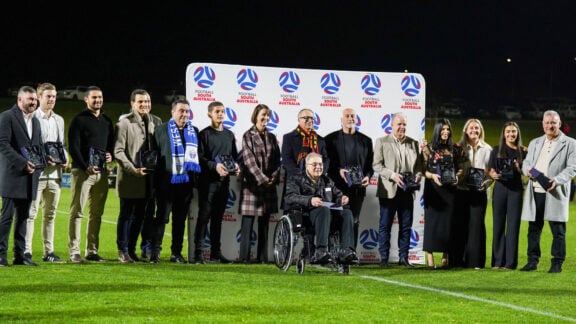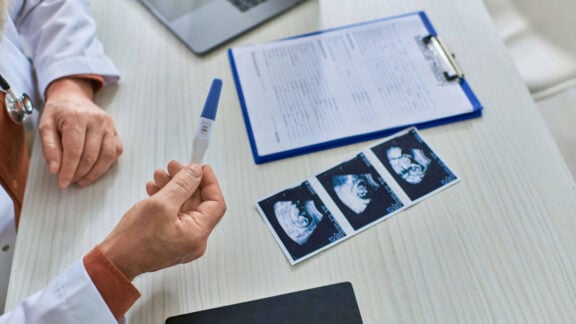The Black Lives Matter protests that have swept through the world reminded Neos Kosmos of Archie Kalokerinos, one of the most important personalities of the Greek diaspora in Australia.
An incredibly compassionate man, he did not suffer fools gladly.
Born in Glen Innes on 28 September 1927 to Nicholas and Mary Kalokerinos, migrants from the tiny Greek island of Kythera. His parents ran a cafe and Archie, one of five children, grew up in a small apartment above the establishment.
Though his educational background was a little sketchy, Mr Kalokerinos got into medical school at Sydney University because he graduated from high school at a time following the war when there was a desperate need for doctors.
After an internship at Lismore Base Hospital, he left for England to train as a surgeon where he met his first wife and had a daughter, Ann.
In 1957, he accepted a role at Collarenebri in north western New South Wales, a post which would forever change his life. It was there that he met his second wife, Catherine, and developed a life-long friendship with Emmanuel Petrohelos and his son, Bill, who was his father’s next-door-neighbour in Greece.
As a doctor, he was shocked by the unexplained deaths, mainly of Aboriginal children of the reserve situated on the edge of town. When he tried to change the status quo, he said he was “openly shunned by doctors” and told that he was doing something wrong. He went on to discover that other areas filled with indigenous communities all around Australia were experiencing similar problems. His book, Every Second Child, touched upon the infant death epidemic he witnessed at the time and his attempts to conduct autopsies to find the cause of the problem were thwarted by authorities.
Hearing about Bill Petrohelos’ success as an opal miner in Coober Pedy, Archie left medicine and turned to opal mining in 1965.
A chance meeting with a group of semi-tribal Aborigines lamenting infant deaths in their community forced Archie to revisit the medical world. He said that a woman from the tribe had told him that the indigenous community did not know why their children were getting sick. “Before white men came this did not happen,” she said.
Archie considered administering the children with Vitamin C injections.
READ MORE: Greek Australian of the century dies

Tom Clark, from the Collarenebri District Hospital told him of a doctor’s position that had become available and asked if he’d like to return?
“It was like asking me to accept a million dollars,” Archie recounted in his biography.
Faced with Mary, a sick Aboriginal girl with symptoms of meningitis, he wanted to administer Vitamin C, but the matron did not want this. After a tug-of-war, he administered the Vitamin C. “Twenty minutes later Mary was normal,” he said. “I had performed a miracle.”
Overnight, the infant mortality rate went from being the highest to the lowest.
At Collarenebri, the Greek Australian doctor also met English nurse Catherine Hunter, who went on to become his second wife. Together they raised their children, Helen and Peter in the picturesque town of Bingara. In her eulogy to her father she remembered “a playful dad… down on all fours, chasing us and playing monsters in the hallway.”
He went on to work with cases related to sudden infant death syndrome, shaken baby syndrome, go on to meet some of the world’s finest medical and scientific minds including: Glenn Detman, Fred Hollows, Fred Klenner, Irwin Stone and dual Nobel laurete Liuns Pauling. His work with Vitamin C would take him to far corners of the world such as the US, Mexico, Italy, Asia and Alaska.
His work was recognised on the TV show This is Your Life, but, not without controversy as the AMA tried to ban the broadcast, and Neos Kosmos voted him as the Greek Australian of the Century in 2000.
He passed away on 1 March 2012 after a struggle with dementia.








